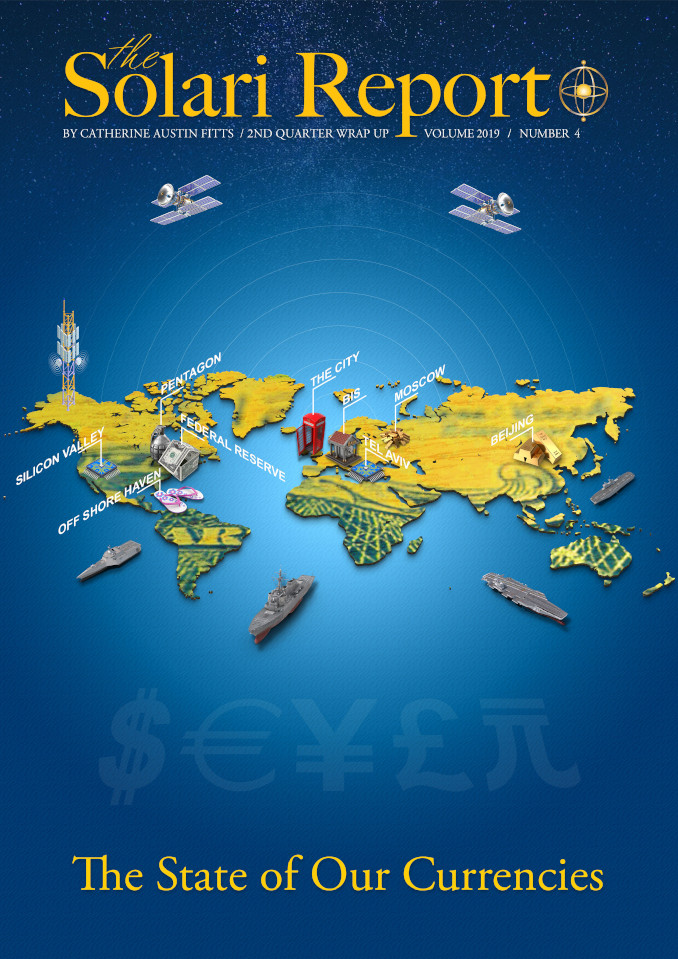
Putin’s comment on the dollar:
https://twitter.com/i/status/1195282924624465927
By Catherine Austin Fitts
I am working on The State of Our Currencies – given Putin’s recent comments, it seems a highly appropriate time to be writing this.
We will publish this in December – if you have questions on the future of the dollar and global currencies, please post here!
Audio is now posted! Click here.








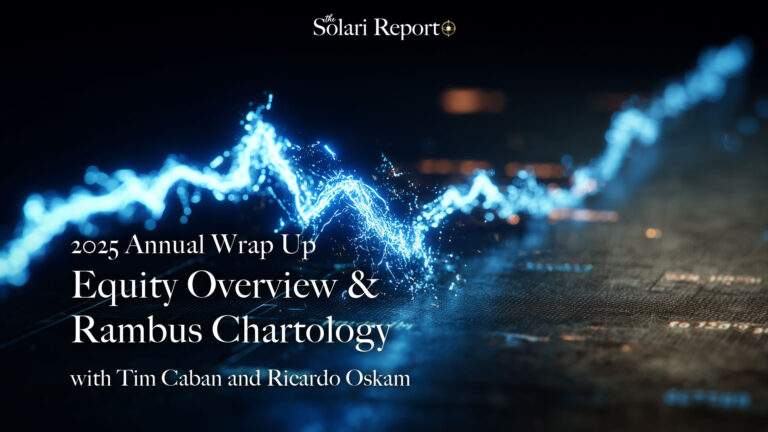

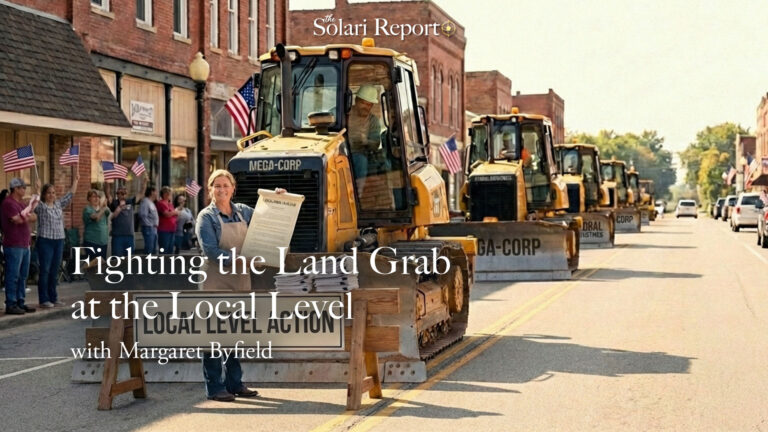


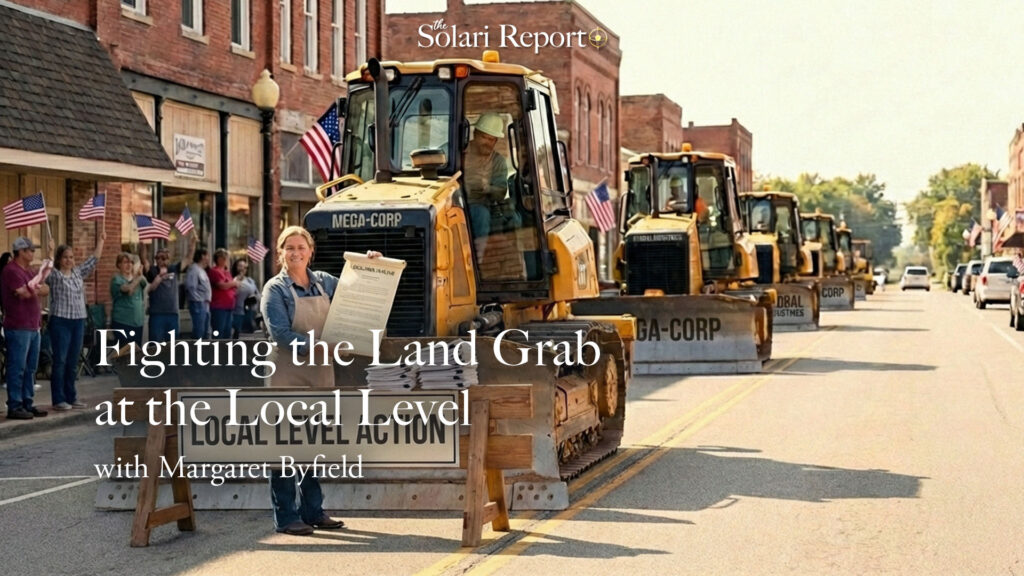





















































































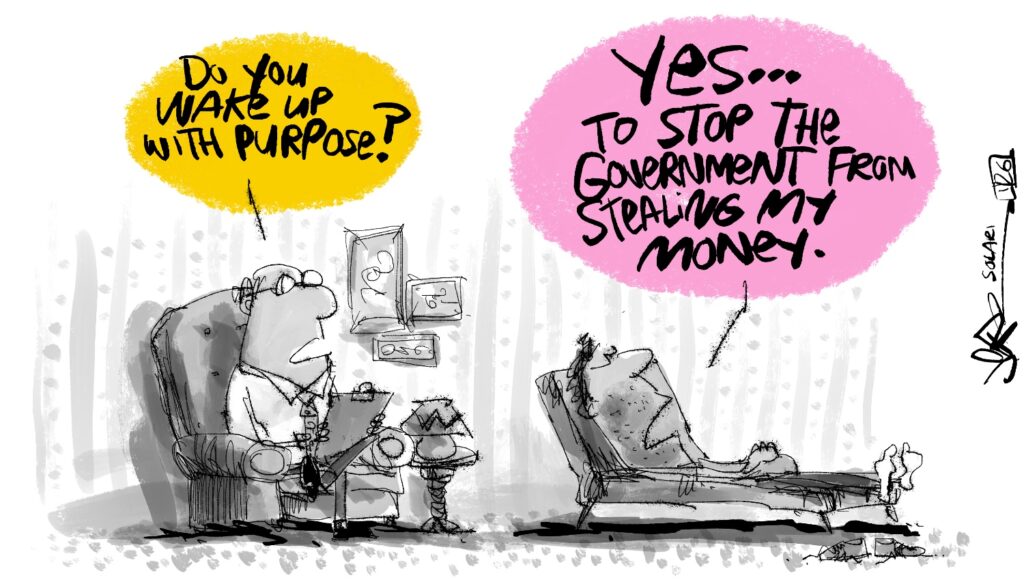





















Hey Catherine – love your site! I think the issues with currencies revolves around the creation and now retreat of the shadow banking system (Eurodollars). The actual reserve currency of the world is offshore US Dollar creation and so looked at in one way, the US Dollar is the reserve currency. However, this system has been and remains beyond the control of the US government and its central bank.
What has happened since the 1950’s, is banks around the world have created US Dollar liquidity by creating loans based in US Dollars which have resided in their reserve accounts. Over time, the requirement to have US Dollars on reserve to create this liquidity slowly disappeared and up through 2007, this system created the liquidity the world was demanding regardless of any US Dollar deposits in these banks. This is where the liquidity that powered the financial system originated. Unfortunately, the collateral backing these loans became weaker and weaker, until 2007, when some banks suddenly retreated from this system because of a lack of good collateral. The reward wasn’t worth the risk.
Since 2007, the collateral situation hasn’t improved and other banks have retreated from the system creating a shortage of US Dollars in the world to repay the loans previously undertaken. The Cayman banks were the first to leave, then the European banks, then the Japanese banks and now it is the Chinese banks. This explains why global growth has nearly halted as the liquidity needed to drive growth has disappeared from the system. Central banks around the world have attempted to replace this liquidity with their QE programs, ZIRP, NIRP, etc., but increasing bank reserves is not the answer.
The situation today is this: The current reserve currency system, Eurodollars, is shrinking resulting in a lack of liquidity worldwide. This is driving the price of US Dollars higher as demand for them in the system is very high but supply is very low. Much of the collateral in the world is weak resulting in problems in the interbank lending market (repo market) forcing banks to hoard good collateral (US debt obligations) rather than loan them in an effort to stay solvent. This situation just feeds on itself creating zombie sovereigns, corporations, pensions and individuals.
It appears what is needed is a global monetary system reset. Debt-based currencies have seemed to run their course. This might explain the increased hoarding of good collateral (gold, energy assets) by sovereigns worldwide as they may suspect the reset is getting closer. I don’t know how or when this situation is going to resolve itself, but the handwriting is on the wall. For any interested, Jeffery Snider at Alhambra Partners continuously updates this situation.
Eric:
Very astute comments. Fits with the US dollar bear trap that I keep referring to. It is one of the reasons that Trump’s tax changes and encouragement of capital returning to North America has ruffled so many feathers.
Thank you. It appears that, in aggregate, the world’s balance sheet is very weak. Much of the world’s capital has been misallocated. Without some miraculous increase in productivity akin to the industrial revolution, which isn’t on the horizon as far as I can see, the world’s capital will have to retrench.
Although the central banking system has attempted to save itself, the underlying economic system can no longer generate a positive return forcing it to shrink. This is always the result of poor capital allocation, or in this case, too much money chasing too few opportunities. We are at the end of this credit cycle.
Hopefully, we will see a transition to a more stable system. If the sovereigns decide to return to issuing currency from their treasuries, rather than continuing the debt-based central banking model, the world’s economic system could find a more stable basis for growth. Unfortunately, this transition, should it occur, will not likely produce good short term conditions for many, but longer term would be a positive for everyone.
I think much of the political battle we see today is based on this situation. Vested interests in the current system are resisting this change, apparently in the hopes of creating a larger, more centralized version. Other interests apparently don’t see things this way and are attempting to extract themselves from the current system. I think, in the end, the market will decide where we are headed.
Thanks for all your contributions, they do not go unnoticed. We do need a more human-based system and I’m sure we will get there. Keep up the good fight!
Very good question – why such an extraordinary and intentional misallocation of capital.
Hey Catherine – love your site! I think the issues with currencies revolves around the creation and now retreat of the shadow banking system (Eurodollars). The actual reserve currency of the world is offshore US Dollar creation and so looked at in one way, the US Dollar is the reserve currency. However, this system has been and remains beyond the control of the US government and its central bank.
What has happened since the 1950’s, is banks around the world have created US Dollar liquidity by creating loans based in US Dollars which have resided in their reserve accounts. Over time, the requirement to have US Dollars on reserve to create this liquidity slowly disappeared and up through 2007, this system created the liquidity the world was demanding regardless of any US Dollar deposits in these banks. This is where the liquidity that powered the financial system originated. Unfortunately, the collateral backing these loans became weaker and weaker, until 2007, when some banks suddenly retreated from this system because of a lack of good collateral. The reward wasn’t worth the risk.
Since 2007, the collateral situation hasn’t improved and other banks have retreated from the system creating a shortage of US Dollars in the world to repay the loans previously undertaken. The Cayman banks were the first to leave, then the European banks, then the Japanese banks and now it is the Chinese banks. This explains why global growth has nearly halted as the liquidity needed to drive growth has disappeared from the system. Central banks around the world have attempted to replace this liquidity with their QE programs, ZIRP, NIRP, etc., but increasing bank reserves is not the answer.
The situation today is this: The current reserve currency system, Eurodollars, is shrinking resulting in a lack of liquidity worldwide. This is driving the price of US Dollars higher as demand for them in the system is very high but supply is very low. Much of the collateral in the world is weak resulting in problems in the interbank lending market (repo market) forcing banks to hoard good collateral (US debt obligations) rather than loan them in an effort to stay solvent. This situation just feeds on itself creating zombie sovereigns, corporations, pensions and individuals.
It appears what is needed is a global monetary system reset. Debt-based currencies have seemed to run their course. This might explain the increased hoarding of good collateral (gold, energy assets) by sovereigns worldwide as they may suspect the reset is getting closer. I don’t know how or when this situation is going to resolve itself, but the handwriting is on the wall. For any interested, Jeffery Snider at Alhambra Partners continuously updates this situation.
Eric:
Very astute comments. Fits with the US dollar bear trap that I keep referring to. It is one of the reasons that Trump’s tax changes and encouragement of capital returning to North America has ruffled so many feathers.
Thank you. It appears that, in aggregate, the world’s balance sheet is very weak. Much of the world’s capital has been misallocated. Without some miraculous increase in productivity akin to the industrial revolution, which isn’t on the horizon as far as I can see, the world’s capital will have to retrench.
Although the central banking system has attempted to save itself, the underlying economic system can no longer generate a positive return forcing it to shrink. This is always the result of poor capital allocation, or in this case, too much money chasing too few opportunities. We are at the end of this credit cycle.
Hopefully, we will see a transition to a more stable system. If the sovereigns decide to return to issuing currency from their treasuries, rather than continuing the debt-based central banking model, the world’s economic system could find a more stable basis for growth. Unfortunately, this transition, should it occur, will not likely produce good short term conditions for many, but longer term would be a positive for everyone.
I think much of the political battle we see today is based on this situation. Vested interests in the current system are resisting this change, apparently in the hopes of creating a larger, more centralized version. Other interests apparently don’t see things this way and are attempting to extract themselves from the current system. I think, in the end, the market will decide where we are headed.
Thanks for all your contributions, they do not go unnoticed. We do need a more human-based system and I’m sure we will get there. Keep up the good fight!
Very good question – why such an extraordinary and intentional misallocation of capital.
Catherine your Prayer Book is beautiful. And so hitting the mark for our times. Lots to read in between the lines, religiously inclined or not. Thank you!
You are most welcome! “The prayers of a righteous man availetth much!”
Catherine your Prayer Book is beautiful. And so hitting the mark for our times. Lots to read in between the lines, religiously inclined or not. Thank you!
You are most welcome! “The prayers of a righteous man availetth much!”
Can you refer me to a through report on Sovereign “Negative Interest Rates”
Once a bond price advances to a price where the next buyer will receive zero interim interest payments plus the Sovereign shall pay par at maturity—- why would there be a buyer for such paper? Or do I have the assumptions incorrect?
Thanks
Charles Brennan
Charles:
I am looking for a good current one. This is the McKinsey 2013 I refer to that addresses subsidy to government https://www.mckinsey.com/featured-insights/employment-and-growth/qe-and-ultra-low-interest-rates-distributional-effects-and-risks
The reason you would keep buying is – safety, purchase mandates, including at central banks or pension funds, hedge fund speculation especially they were arbitraging into purchase mandates
Catherine
Can you refer me to a through report on Sovereign “Negative Interest Rates”
Once a bond price advances to a price where the next buyer will receive zero interim interest payments plus the Sovereign shall pay par at maturity—- why would there be a buyer for such paper? Or do I have the assumptions incorrect?
Thanks
Charles Brennan
Charles:
I am looking for a good current one. This is the McKinsey 2013 I refer to that addresses subsidy to government https://www.mckinsey.com/featured-insights/employment-and-growth/qe-and-ultra-low-interest-rates-distributional-effects-and-risks
The reason you would keep buying is – safety, purchase mandates, including at central banks or pension funds, hedge fund speculation especially they were arbitraging into purchase mandates
Catherine
I can’t wait to see what your thorough research turns up on the matter of timing.
The Jim Rickards model of Complexity Theory / Bayesian Probability currently (Dec 2019) places the chance of a recession before the USA 2020 election at 30% or less. I suppose that covers a reset as well.